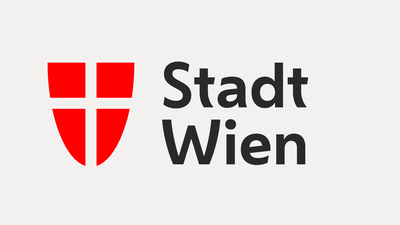Cathrin Pichler Prize 2019: Nicole Suzuki
The Cathrin Pichler Prize 2019 goes to Nicole Suzuki, in whose work the book becomes visible as a material site of knowledge production and its underlying power structures.
As part of the award ceremony, the artist, political scientist, and founder of the Zaglossus publishing house, who was born in 1977, will show new works that trace back to paper production techniques, such as "Shifu", the Japanese art of producing textiles from paper fibers. Nicole Suzuki's works intervene in the medium of the book, making it tangible as a physical space and emphasizing direct interactions between transported knowledge and its carrier.
Nicole Suzuki’s practice focuses on the question of how books can be created without reproducing structures of hegemony. The exhibition on occasion of the Cathrin Pichler Award, which Nicole Suzuki received in 2019, combines strategies that are contesting knowledge hierarchies beyond the textual content. These strategies deploy the whole realm of the creation of meaning, including processes of producing, binding and imprinting paper, conceptual writing and the distribution of knowledge. Through that, underlying hierarchical structures of the genesis, formation and organization of knowledge, which can lead to epistemic violence, are addressed in a mainly sense-based approach.
For this exhibition, Nicole Suzuki presents works that appeal to a multitude of senses and originate from different sources. PAPER (2018 –) re-activates material of discarded books through molding processes, resulting in seemingly traceless, white and empty compositions of paper, which however still contain the knowledge their materiality was once holding – an invitation to move away from the assumption of the empty page as a neutral space. THREAD (2018 –) is inspired by »shifu«, the Japanese art of making threads for textiles out of paper and refers to the legend that such paper threads were woven into clothing so that messengers could secretly transfer information through enemy territory. The two artist books THINKABLE ETC (2020) and IS ID ALL (2017) pay a tactile tribute to the book This Bridge Called My Back: Writings by Radical Women of Color by imprinting the names of the editors (Cherríe Moraga and Gloria Anzaldúa) and all other contributors in transparent 3D varnish on the book cover. A collection of essays, testimonials, interviews and poetry, this book, first published in 1981 by Persephone Press and re-published in 1983 by Kitchen Table: Women of Color Press, was one of the first to give voice to the contradictory experiences of women* of color, thus contributing to an important shift in feminist consciousness. THINKABLE ETC contains the three texts ours, questions and feelings, which are a compilation (in the order of their appearance) of phrases and passages used in the anthology This Bridge Called My Back.
This way of reworking the text favors a collection instead of a singular voice and challenges conventional ideas of authorial control. IS ID ALL disassembles the book This Bridge Called My Back even further as it compiles all words from the original book and orders them alphabetically. The “new” text could either be read as a succession of words as concrete poetry or an investigation of the usage of words in the context of radical writing in the early 1980s – since challenging the canon of theory also means to introduce a different vocabulary to the discourse. Either way, these works as well as the practice of Nicole Suzuki as a whole, offer re-readings of texts that are neither reproducing the original nor creating something entirely new, but call to attention the importance of disobedient and multi-directional forms of writing, reading and working with text, in order to put an emphasis on (still) marginalized knowledges.
The jury was composed of: Carola Dertnig, Andreas Spiegl, Harald Krejci and Felicitas Thun-Hohenstein.
Nicole Suzuki (*1977) works in different media on questions of knowledge production with a focus on the possibilities, violent histories and limitations of the book as a medium. She runs the publishing house Zaglossus and is an interdisciplinary artist, political scientist and a teacher.
![Nicole Suzuki, [em]Work[/em] (Videostill), 2018 © Nicole Suzuki Hands can be seen using a silver paper knife and a ruler to cut through three superimposed pages of paper on a green cutting pad.](https://www.akbild.ac.at/en/institutes/art-theory-and-cultural-studies/events/exhibitions/cathrin-pichler-prize-2019-nicole-suzuki/bild1.jpeg/@@images/image-1400-1066e8d72c9ea67ed41d453421fa1e9f.jpeg)
![Exhibition view [em]Cathrin Pichler Prize 2019 - Nicole Suzuki[/em] © Academy of Fine Arts Vienna, 2020, photo: Joanna Pianka Metal bookcase with three framed white paper works presented in front of the books on the shelves.](https://www.akbild.ac.at/en/institutes/art-theory-and-cultural-studies/events/exhibitions/cathrin-pichler-prize-2019-nicole-suzuki/bild2.jpg/@@images/image-1400-1066e8d72c9ea67ed41d453421fa1e9f.jpeg)
![Exhibition view [em]Cathrin Pichler Prize 2019 - Nicole Suzuki[/em] © Academy of Fine Arts Vienna, 2020, photo: Joanna Pianka Bookshelf photographed at an angle, in one of the shelves a monitor can be seen running a video. On it, hands can be seen tying a paper thread.](https://www.akbild.ac.at/en/institutes/art-theory-and-cultural-studies/events/exhibitions/cathrin-pichler-prize-2019-nicole-suzuki/bild3.jpg/@@images/image-1400-1066e8d72c9ea67ed41d453421fa1e9f.jpeg)
![Exhibition view [em]Cathrin Pichler Prize 2019 - Nicole Suzuki[/em] © Academy of Fine Arts Vienna, 2020, photo: Joanna Pianka Several books presented on a table. Two books are intertwined on the open side.](https://www.akbild.ac.at/en/institutes/art-theory-and-cultural-studies/events/exhibitions/cathrin-pichler-prize-2019-nicole-suzuki/bild4.jpg/@@images/image-1400-1066e8d72c9ea67ed41d453421fa1e9f.jpeg)
![Exhibition view [em]Cathrin Pichler Prize 2019 - Nicole Suzuki[/em] © Academy of Fine Arts Vienna, 2020, photo: Joanna Pianka White table on which a net out of black and grayish paper threads is lying.](https://www.akbild.ac.at/en/institutes/art-theory-and-cultural-studies/events/exhibitions/cathrin-pichler-prize-2019-nicole-suzuki/bild5.jpg/@@images/image-1400-1066e8d72c9ea67ed41d453421fa1e9f.jpeg)
